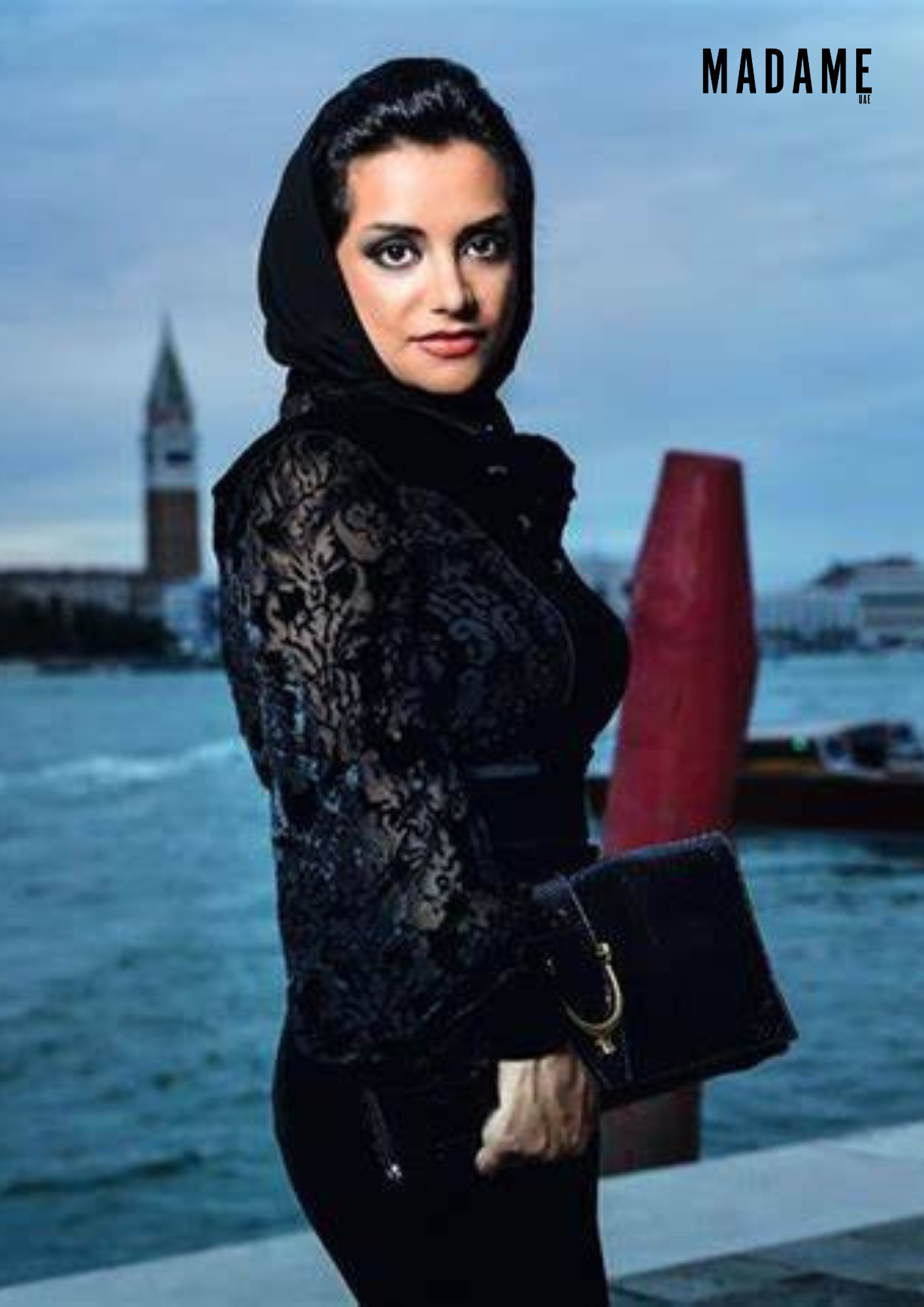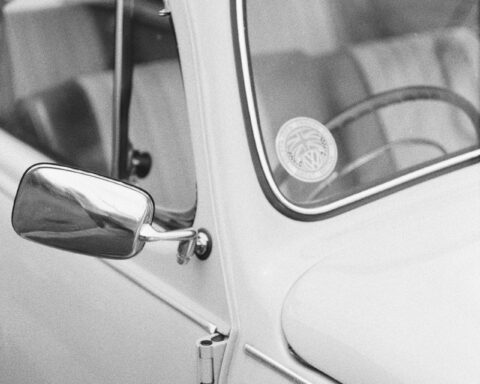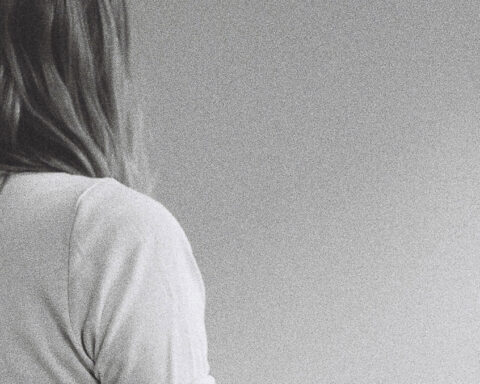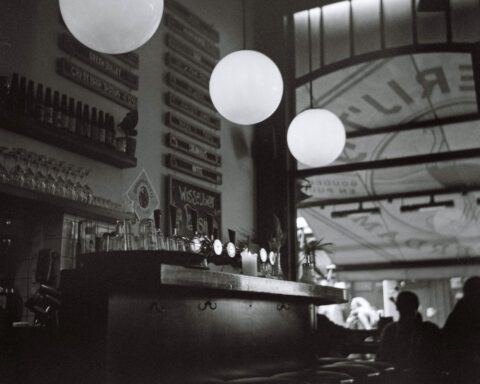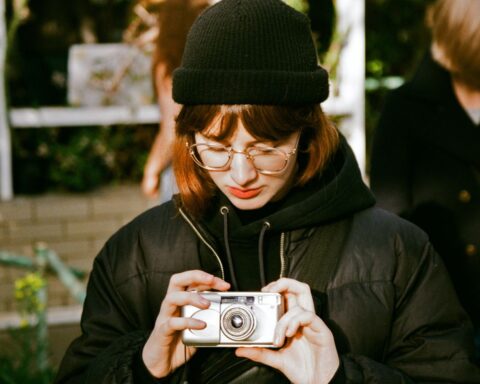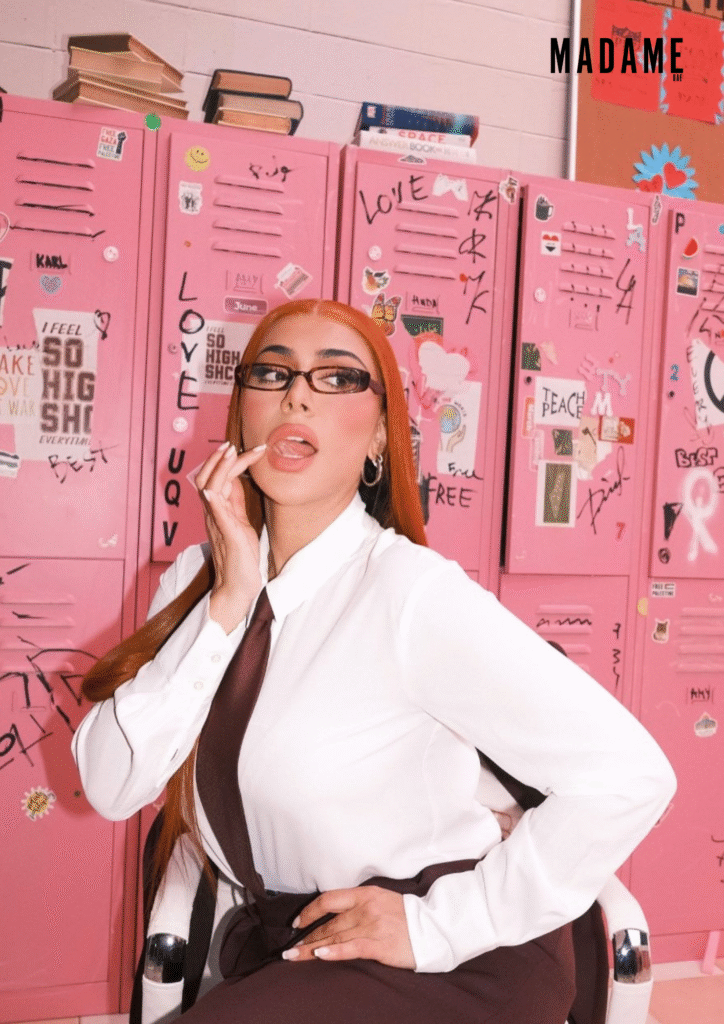Nayla Al-Khaja, the UAE’s first female filmmaker and a bold visionary in Middle Eastern cinema, is back in the spotlight with her latest psychological thriller, ‘BAAB’. As a filmmaker known for breaking boundaries and telling stories that challenge societal norms, Al-Khaja’s new work is not just a film—it’s a conversation starter, a mirror into the human psyche, and a celebration of cinematic innovation.
‘BAAB’, which means “door” in Arabic, is a gripping, surreal exploration of trauma and memory, centered around a young woman navigating a web of suppressed childhood recollections. Set against the rugged landscapes of Ras Al Khaimah, the film’s haunting visual language and emotionally charged narrative mark a new chapter in Al-Khaja’s already impactful career.
In a recent conversation, Al-Khaja shared insights into the creation of ‘BAAB’, the emotional intensity behind the project, and her dynamic collaboration with Canon, which provided the groundbreaking technology that helped bring her vision to life.
Unlocking the Mind: The Story Behind ‘BAAB’
Al-Khaja describes ‘BAAB’ as a deeply personal story inspired by a real case she encountered during her research on childhood trauma. “The story is not just fiction—it’s rooted in truths that many families in the region don’t talk about,” she said. The film delves into the blurred line between reality and memory, following Wahida, a young woman whose return to her childhood home reawakens long-suppressed emotions and dark secrets.
Shot entirely in the UAE, the film immerses the audience in a dreamlike atmosphere. “We wanted the audience to feel Wahida’s confusion, her fear, her urgency to know the truth,” Al-Khaja explained. “Every frame had to support that emotion.”
The film’s aesthetic is rich in metaphor and symbolism, with recurring motifs like mirrors, thresholds, and darkness used to represent the fractured state of the protagonist’s mind. According to Al-Khaja, ‘BAAB’ is not just about opening doors to repressed memories—it’s also about opening cultural doors to conversations around mental health, a topic still stigmatized in many communities.
Canon Collaboration: Visual Precision and Creative Freedom
To achieve the intense visual style of ‘BAAB’, Al-Khaja partnered with Canon Middle East, making use of their EOS R5 C cinema camera and Sumire Prime Lenses. This marked a significant moment for both the filmmaker and the brand, as Canon continues to invest in storytelling through high-end technology.
“Canon’s technology allowed us to shoot in extremely low light without losing detail. That was crucial,” Al-Khaja emphasized. “The intimacy of Wahida’s emotional journey required a visual language that was immersive, precise, and emotionally honest.”
This collaboration wasn’t just about the hardware—it was also about creative support. Canon provided technical consultation throughout the shoot, helping Al-Khaja’s team push the boundaries of what’s possible in independent cinema.
“Working with Canon gave me the freedom to experiment,” she said. “As a filmmaker, having that kind of partnership means everything. It lets you focus purely on the craft.”
Leading the Charge for Emirati Cinema
Nayla Al-Khaja has long been at the forefront of the UAE’s evolving film scene. With short films like The Neighbor and Animal, and her debut feature Three, she has carved a space for stories that tackle identity, gender, and family dynamics with boldness and nuance. Her work often touches on themes rarely explored in regional cinema, and with ‘BAAB’, she takes another step toward reshaping the narrative around Arab women in film—both in front of and behind the camera.
“For me, cinema is a tool for healing,” she reflected. “When we dare to tell the uncomfortable truths, we open the door for growth—not just for the characters, but for the audience and the culture at large.”
Looking Forward
Al-Khaja’s partnership with Canon is set to extend beyond ‘BAAB’. She hinted at future collaborations, including workshops and mentorship programs aimed at nurturing the next generation of Arab filmmakers.
“Technology is advancing, yes. But what we need even more are platforms that support storytellers—especially women—from this region,” she said.
‘BAAB’ is currently making its rounds on the international festival circuit and is already generating buzz for its raw emotion, visual artistry, and compelling performances. As Nayla Al-Khaja continues to innovate and challenge boundaries, her journey stands as a powerful reminder of what’s possible when culture, creativity, and technology unite.
In the world of cinema, some doors open to fantasy. With ‘BAAB’, Nayla Al-Khaja opens one that leads straight to the soul.

